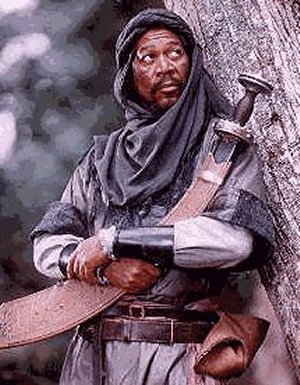Lesson 5: Diversity
Attention

"Allah loves wondrous variety"
-
Akeem, Robin Hood: Prince of Thieves
Learning Outcomes
Upon completion of this lesson's material, students will be able to:
- Identify Cultural Universals in their personal world
- Explore implications of Ethnocentrism and Cultural Relativism
Teaching
When we speak to issues of diversity we can be discussing racial, height, skill, and weight diversity, but we are most likely talking about CULTURAL diversity.
Cultural diversity simply means that among many people there is a variety of groups with unique MATERIAL and NON-MATERIAL culture.
Cultural Universals
CU's are components of culture that are shared by nearly all societies around the world. It is pretty intersting to consider how humanity has so many shared aspects of culture, but that they are expressed in so many different ways.
Here is a link to Wikipedia on Cultural Universals
Weddings
One of the cultural universals that you will find on this site are ceremonies that bind men and women together...weddings.
While the presence of these ceremonies represents a cultural universal, the traditions and practices may vary quite a bit. I'm sure you have been to a wedding in your own family...consider reading about Indian Wedding Traditions.
How do you feel about these practices? How are they different than your own?
Ethnocentrism
We all have a degree of ethnocentrism because we all see the world from our own cultural viewpoint. What is normal and expected for us shapes the way we view other practices in the world.
How do the Indian Wedding Traditions support or contradict your values and expectations?
Assessment
Lesson 5 Discussion
Review the list of Cultural Universals in Wikipedia. Select one and answer the following questions:
- How does this aspect of culture manifest in your life (remember to answer this like a sociologist)?
- Look up another culture's practice in the same aspect and describe that.
- Reflect on your own degree of ethnocentrism and cultural relativism in regard to both of these ways.
In-class Discussion
For this discussion we are going to examine two different wedding practices...those in your own culture and those in Indian culture. Reflect on ways in which your views on these differences reflect ethnocentrism on your part.